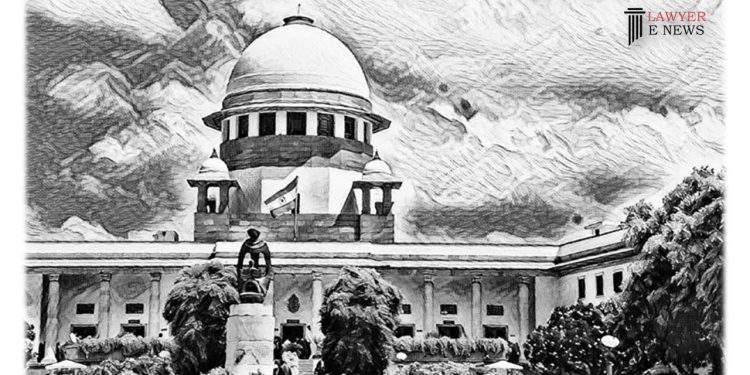-
by Admin
15 February 2026 5:35 AM



In a recent judgment passed on 26th April 2023, the Supreme Court of India has ruled that a chargesheet cannot be filed by an investigating agency without completing the investigation of a case only to deprive an arrested accused of their right to default bail under Section 167(2) of the Criminal Procedure Code (CrPC). The court held that the right to default bail under Section 167(2) is not just a statutory right, but a fundamental right that flows from Article 21 of the Constitution of India.
The judgment was passed in a writ petition filed by a person accused in a case under the Narcotic Drugs and Psychotropic Substances Act, 1985. The accused had been arrested and remanded to police custody, and subsequently to judicial custody, for a period of more than 60 days. The investigating agency had filed a supplementary chargesheet just before the expiry of the 60-day period, with the purpose of denying the accused their right to default bail. The trial court had accepted the incomplete chargesheets and continued the remand of the accused beyond the maximum period specified, in violation of the law.
The Supreme Court noted that the practice of filing preliminary reports before the enactment of the present CrPC has now taken the form of filing chargesheets without actually completing the investigation, only to scuttle the right of default bail. If such chargesheets are allowed to be filed without completing the investigation, it would in effect negate the purpose of introducing section 167(2) of the CrPC and ensure that the fundamental rights guaranteed to accused persons are violated.
The court held that the trial court, in such cases, cannot continue to remand an arrested person beyond the maximum stipulated time without offering the arrested person default bail. The right of statutory bail, however, is extinguished, if the charge sheet is filed within the stipulated period. The question of resorting to a supplementary chargesheet under Section 173(8) of the CrPC only arises after the main chargesheet has been filed, and a supplementary chargesheet, wherein it is explicitly stated that the investigation is still pending, cannot be used to scuttle the right of default bail, for then, the entire purpose of default bail is defeated, and the filing of a chargesheet or a supplementary chargesheet becomes a mere formality, and a tool, to ensue that the right of default bail is scuttled.
The court also observed that while arrest and remand are crucial for the smooth functioning of the investigation authority for the purpose of attaining justice, it is equally important to be cognizant of a power imbalance. Therefore, it becomes essential to place certain checks and balances upon the Investigation Agency in order to prevent the harassment of accused persons at their hands.
With these findings and conclusions, the Supreme Court made the interim order of bail passed in favor of the accused absolute and disposed of the writ petition. The judgment sets an important precedent for ensuring the protection of fundamental rights of accused persons and preventing the misuse of the power of remand by investigating agencies.
RITU CHHABARIA VS UNION OF INDIA & ORS.
